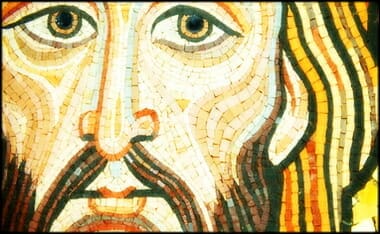PART ONE!
Why This ONE Question STUMPED Alex O’Connor!
PART TWO!
Alex O’Connor RESPONDS To GodLogic!

PART ONE!
Why This ONE Question STUMPED Alex O’Connor!
PART TWO!
Alex O’Connor RESPONDS To GodLogic!

These verses used below are also used for Jehovah’s Witnesses and our Jewish brothers as well. BTW, the title’s this YouTube Channel creates are essentially “click bait” — “COMPLETELY,” “DESTROYED”, etc, but I appreciate them adding captions and the like.
Sam Shamoun COMPLETELY DESTROYS Sheikh Uthman’s ARGUMENTS About Jesus
Claiming that Jesus never identified as God in the Bible is an obvious display of ignorance. Passages like John 1:1, John 20:28, and Titus 2:13 clearly affirm Jesus’ divinity, directly contradicting his arguments. Furthermore, questioning the authenticity of the New Testament while relying on Islamic texts, which lack comparable manuscript evidence and consistency, is totally hypocritical.
Sincere Muslim THOUGHT He EXPOSED The Bible… BUT COMPLETELY BACKFIRES
The Bible clearly shows that Jesus is more than a prophet: He is called “Lord” and “God,” worshipped as divine, recognized as the eternal “Word of God,” and claims to be “I AM,” showing His divine nature, which differs greatly from the Islamic view of Him being just a prophet!

I am going through this debate [below] and as soon as Dr. Ehrman said this, my thoughts raced back to the first time I read “More Than a Carpenter“; and so I grabbed this video to make the point I read — also by Josh McDowell.
In this video, Bart Ehrman & Peter J Williams discuss what Ehrman calls a “developmental view” of the 4 Gospels, that is, the idea that Jesus’ claims of divinity were added to the later gospels but did not exist in the gospel of Mark. His ultimate point is that Jesus did not believe Himself to be, nor ever claim to be, God. This turns out to be a really interesting discussion and a useful example of the philosophical presuppositions of modern scholarship. And yes.. Ehrman’s argument is refutted… Enjoy!
In this clip, Dr. William Lane Craig addresses Dr. Bart Ehrman’s claim that conflicting accounts in the Gospels undermine the credibility of the Resurrection.

Here are some ways to deal with Muslim apologists questioning Jesus’ Divinity:
(Above) Nabeel Qureshi, a former Muslim, answers a question from a faithful Muslim about how Jesus could have both a Divine (God) nature and a human nature without confusion or contradiction. See more from Nabeel HERE Follow him on TWITTER as well.
Nabeel is battling stomach cancer, so any prayers would be a gracious help.
Here is a more in-depth presentation dealing with how the question is typically raised.
Muslims around the world are being trained to ask Christians, “Where did Jesus say, ‘I am God, worship me,’ in those exact words?” However, if Muslims are suggesting that Jesus could only claim to be God by uttering a specific sentence, we may reply by asking, “Where did Jesus say, ‘I am only a prophet, don’t worship me,’ in those exact words?” The unreasonable demand for a particular statement, if applied consistently, would thus force Muslims to reject their own view!
Fortunately, we have a simple way to examine what Jesus said about himself. According to both the Bible and the Qur’an, there are certain claims that only God can truly make. For instance, God alone can correctly state that he created the universe. Of course, a mere human being can pronounce the words, “I created the universe,” but the statement would be false coming from anyone other than God.
Hence, if Jesus said things that can only truly be said by God, we must conclude that Jesus claimed to be God. Interestingly, Jews, Christians, and Muslims agree on many of the claims that cannot be properly made by (or about) mere human beings. In this video, we consider several examples of such claims.
For more on the deity of Christ, watch these videos by David Wood:
More from David Wood:
A Couple Debates/Discussions
A good back-and-forth between Imam Mustri and Dr. James White:
“Did the Earliest Followers of Jesus Believe in His Deity?” James White debates Shabir Ally at the University of Pretoria in South Africa.